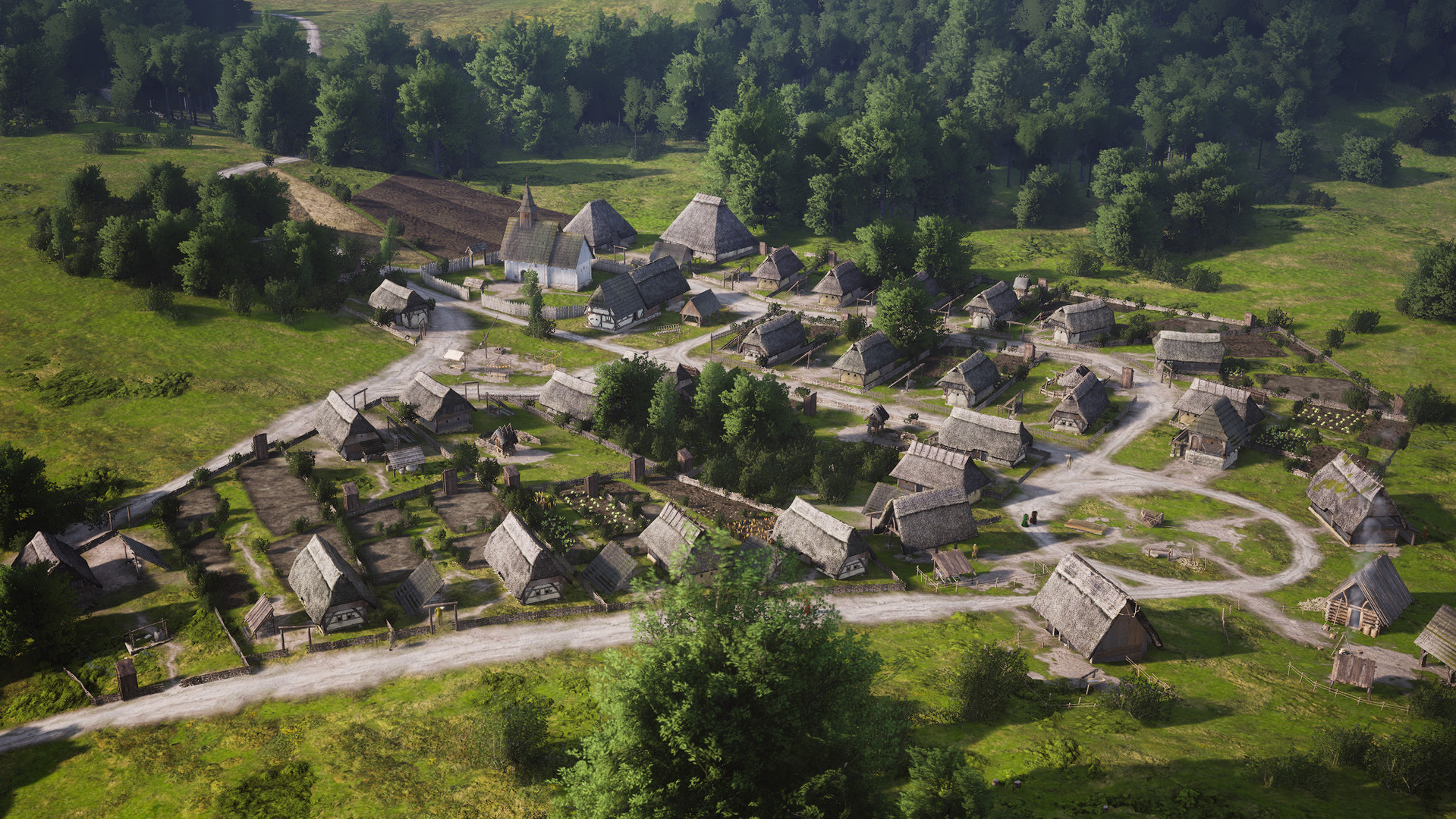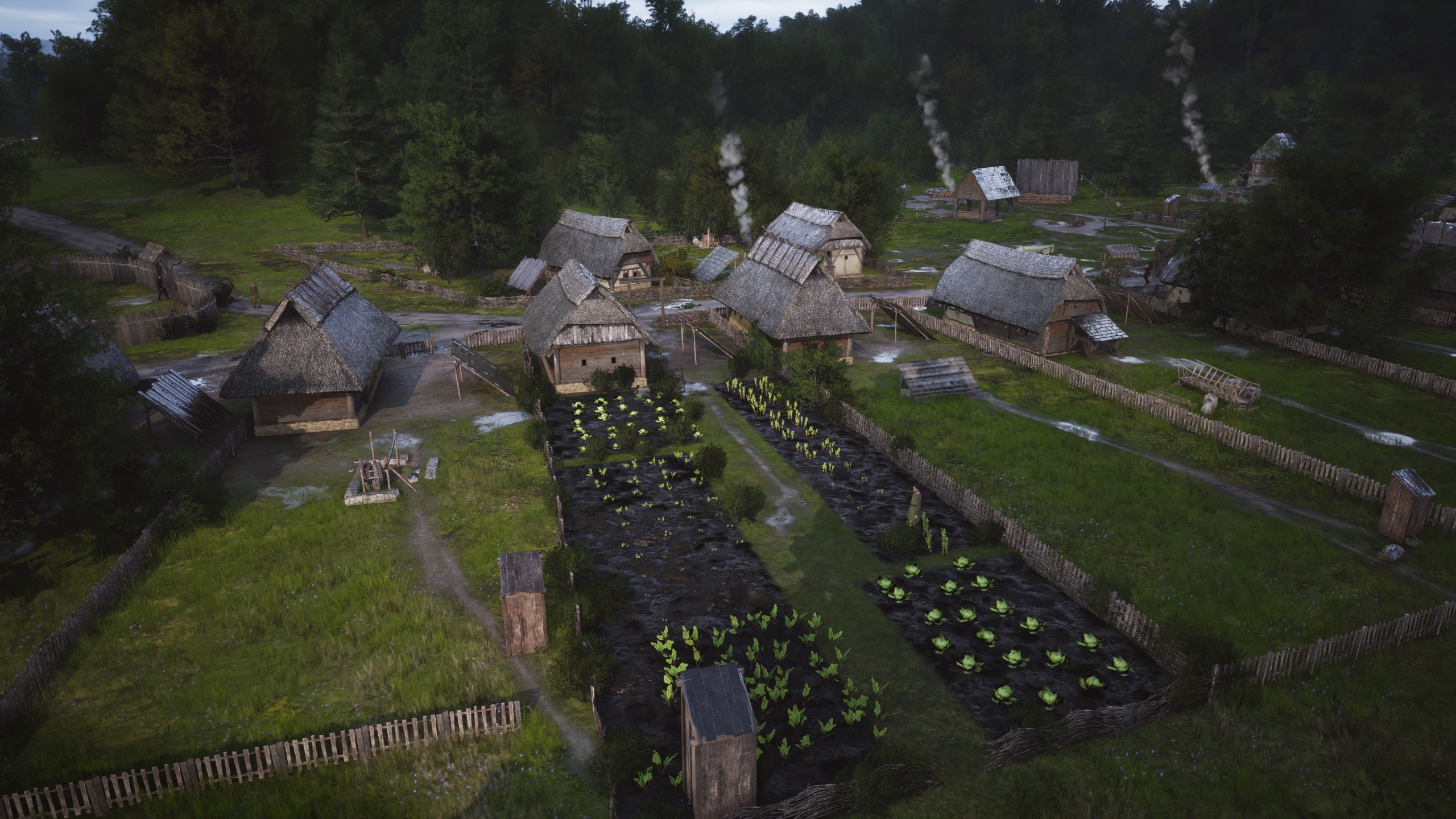One of Steam's most wishlisted city builders has a pretty spectacular demo
The demo of Manor Lords is limited in scope, but still has an impressive amount of detail and some interesting features.

Keep up to date with the most important stories and the best deals, as picked by the PC Gamer team.
You are now subscribed
Your newsletter sign-up was successful
Want to add more newsletters?

Every Friday
GamesRadar+
Your weekly update on everything you could ever want to know about the games you already love, games we know you're going to love in the near future, and tales from the communities that surround them.

Every Thursday
GTA 6 O'clock
Our special GTA 6 newsletter, with breaking news, insider info, and rumor analysis from the award-winning GTA 6 O'clock experts.

Every Friday
Knowledge
From the creators of Edge: A weekly videogame industry newsletter with analysis from expert writers, guidance from professionals, and insight into what's on the horizon.

Every Thursday
The Setup
Hardware nerds unite, sign up to our free tech newsletter for a weekly digest of the hottest new tech, the latest gadgets on the test bench, and much more.

Every Wednesday
Switch 2 Spotlight
Sign up to our new Switch 2 newsletter, where we bring you the latest talking points on Nintendo's new console each week, bring you up to date on the news, and recommend what games to play.

Every Saturday
The Watchlist
Subscribe for a weekly digest of the movie and TV news that matters, direct to your inbox. From first-look trailers, interviews, reviews and explainers, we've got you covered.

Once a month
SFX
Get sneak previews, exclusive competitions and details of special events each month!
I was only a few minutes into the demo of medieval strategy city builder Manor Lords when I felt a sudden rush of excitement. I'd just created my first set of burgages—residences that citizens can rent from their lord and landowner—which in itself was a satisfying bit of business, though not the thing I'm really excited about.
You don't just plunk a house down in Manor Lords but draw a box with four corners, letting you dictate the length and breadth of the zone with the box automatically snapping to any nearby roads and sort of optimizing the space to fit the houses inside. It's a pleasing system (there's a gif somewhere down below showing it in action) and I can see it coming in handy after a town has become dense and you're trying to squeeze in extra housing between other buildings or roads.
Also highly enjoyable: just sitting back and watching the homes, and any other buildings in the village, being constructed by the medieval workforce. It's a highly detailed process. A villager leads over an ox that's dragging a huge tree trunk behind it, the framework of the building goes up bit by bit as busy builders hammer away, then the roof and walls begin to appear. You can watch buildings being constructed practically a plank at a time, and there's a little bit of variation in the finished product so houses don't look completely identical.
But what really got me jazzed was seeing that I could allow villagers to have small gardens behind their homes where they can grow vegetables and raise chickens. Yes, I am sitting here legitimately jazzed over a garden.
It's because I've been reading "Life in a Medieval Village" by Francis and Joseph Gies, and this is a lovely and accurate detail to include. Villagers did work on large communal farms but they also often had their own gardens behind their homes where they could grow vegetables and raise livestock. And here it is in Manor Lords (though the game warns that letting villagers tend to their own gardens might mean they slack off on other jobs, which also sounds accurate). Typically in medieval city builders you can add gardens near residences, but (as in Farthest Frontier) they're purely decorative and give homes some sort of bonus. Here, gardens actually produce resources. Awesome!
Once I'd finished marveling over the little gardens, I resumed growing my starter village. The early steps are pretty typical for a city builder: Place a lumberyard and assign a worker or two to cut down trees. Assign a firewood splitter so citizens can burn fuel to survive the winter. Build a gathering hut and a hunting camp to secure an early food source. People need water so a well must be built, and a marketplace with stalls for food, firewood, and clothing gives your villagers a place to buy the goods they're lacking.
Once the most basic of needs are met, more infrastructure options are available: tanneries to turn animal hides into leather, a mining operation to produce ore, fields for farming, a church, a pub, and so on. When the village has grown a bit, the King will notice and start taxing your medieval ass, so trading posts and profitable markets need to be maintained.
Keep up to date with the most important stories and the best deals, as picked by the PC Gamer team.
That's all pretty standard for city builders, but there's another really nice feature in Manor Lords. Besides zooming way in to watch people work, you can actually click the eyeball icon below your lord's avatar and pop into the village in person to walk around and check things out really, really up close.
Manor Lords: Walking through town"
"Hello, grubby villagers, I am your lord and fancy fop. Don't mind me or my ridiculous pointy shoes! I am not here to interfere, just to silently judge you."
Along with the finer details I'm enjoying in the demo, there's a lot of ambition in Manor Lords. While the features dealing with expansion are locked away, you can at least look at the overworld map and imagine growing your village into a sizable medieval town, raising an army and levies, and conquering other areas. The map looks pretty big across a dozen different regions, with resources marked so you know which might be the best to eventually take over.
With so much detail and a scale beyond just managing and growing a village, I'm a little concerned about performance, though that's a common issue in most city building games. As you spread out, cover more land, and construct sometimes hundreds of different buildings, GPUs can run hot and performance can get pretty choppy. I'm curious to see how Manor Lords handles the pressures of so much fine detail when it's in full release.
Manor Lords: Placing lots"
Manor Lords has been in the works for a while—we covered a gameplay overview back in 2020—and since then it's become one of the top wishlisted games on Steam. Developer Slavic Magic hasn't announced a release date yet, but, gosh, I hope it's out soon. I'm excited to see more on the grand scale—real time tactical battles, settling new regions, the diplomacy system with competing AI-controlled lords—as well as more of the finer details. I see there is a candle shop you can build, which might mean there is bee farming. I do love bee farming. (Though tallow was a much cheaper and more common resource for candle-making. Again, I'm reading a book.)
One major bummer: You can't save your game in the Manor Lords demo, which is disappointing as I'd be perfectly happy tinkering with my little village for the rest of the week. But my first village was great joy to create, so I'm perfectly happy to just build another one.

Chris started playing PC games in the 1980s, started writing about them in the early 2000s, and (finally) started getting paid to write about them in the late 2000s. Following a few years as a regular freelancer, PC Gamer hired him in 2014, probably so he'd stop emailing them asking for more work. Chris has a love-hate relationship with survival games and an unhealthy fascination with the inner lives of NPCs. He's also a fan of offbeat simulation games, mods, and ignoring storylines in RPGs so he can make up his own.


